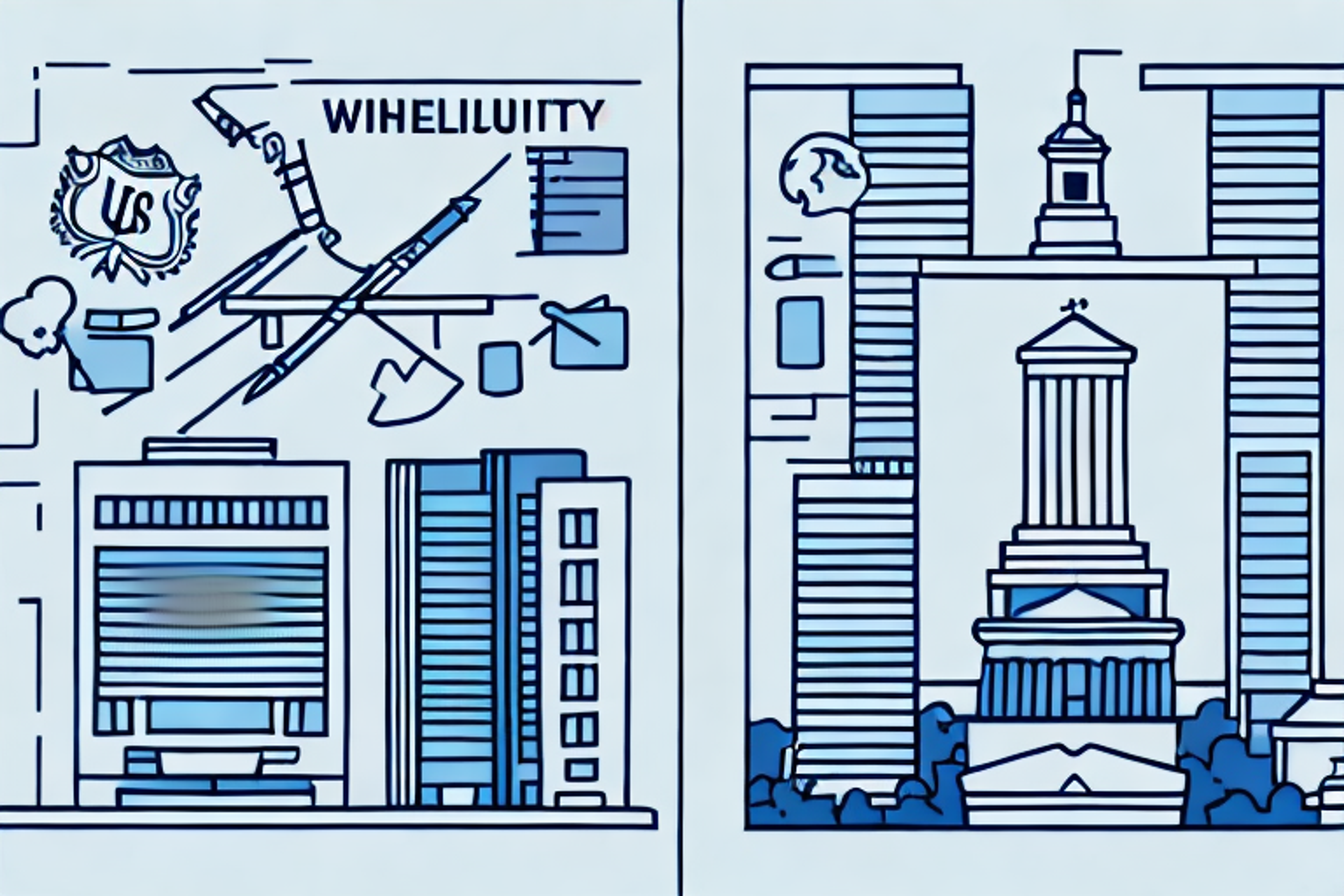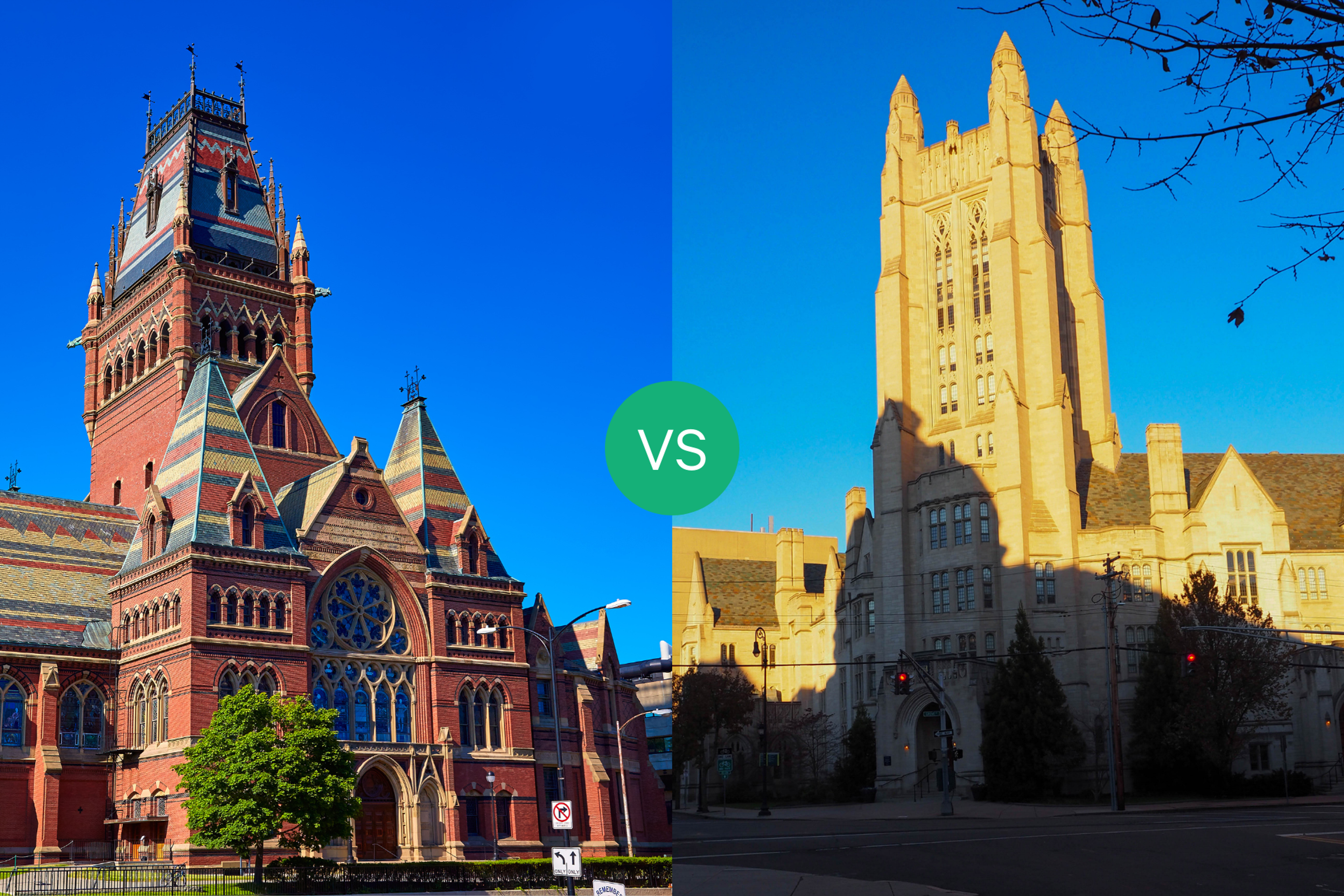University of Michigan Vs University of Illinois: Law School Programs and Applications
Are you considering law school and deciding between the University of Michigan and the University of Illinois? This article compares their law school programs and application processes to help you make an informed decision.
Posted June 13, 2025

Table of Contents
Free Event

Featuring Indrani S.
Law School App Office Hours with a Former Stanford Admissions Officer
Starting Thursday, September 11
11:30 PM UTC · 45 minutes

Featuring Indrani S.
Choosing the right law school is an important decision for prospective law students. The University of Michigan and the University of Illinois are both highly-ranked law schools, but they have their own unique strengths. In this article, we'll compare and contrast their law school programs and admissions processes, as well as explore the curriculum, faculty, student life, career opportunities, extracurricular activities, financial aid options, alumni networks, and tips for successful applications at both schools.
Comparing the Law School Programs at UMich and UIllinois
The law school programs at the University of Michigan and the University of Illinois have many similarities and differences. One of the similarities is that both schools offer a three-year Juris Doctor (JD) program. However, the University of Michigan also offers a dual degree program where students can earn a JD and a master's degree in another discipline, such as business or public policy.
On the other hand, the University of Illinois has a specialized program called the Program in Criminal Law and Procedure, which provides students with an in-depth education on criminal law and procedure. Additionally, both schools offer clinical programs that allow students to gain hands-on experience in various legal settings.
Another difference between the law school programs at UMich and UIllinois is the availability of joint degree programs. The University of Michigan offers several joint degree programs, including a JD/Master of Arts in Asian Studies and a JD/Master of Public Health. In contrast, the University of Illinois only offers one joint degree program, a JD/Master of Business Administration.
What to Expect from the Law Schools at the University of Michigan and University of Illinois
The University of Michigan law school is known for its emphasis on interdisciplinary study and its supportive community. Students can expect to engage in lively class discussions, receive personalized attention from professors and staff, and explore various legal topics through a lens of intersectionality.
Similarly, the University of Illinois law school provides a robust and challenging academic curriculum. Students can expect a strong emphasis on legal writing and research skills, as well as opportunities to participate in legal clinics and moot court competitions. The faculty at Illinois are leaders in their respective fields, bringing a wealth of expertise and diverse perspectives to the classroom.
Additionally, the University of Michigan law school offers a wide range of extracurricular activities and organizations for students to get involved in. These include student-run journals, moot court competitions, and pro bono legal clinics. Students can also take advantage of the school's extensive alumni network, which provides opportunities for mentorship and networking.
At the University of Illinois law school, students can expect to benefit from the school's strong connections to the legal community in Chicago and beyond. The school has partnerships with law firms, government agencies, and public interest organizations, providing students with opportunities for internships and job placements. The school also offers a variety of study abroad programs, allowing students to gain international legal experience and broaden their perspectives.
The Admissions Process for Law School at UMich and UIllinois
The admissions process for both law schools is highly competitive. Prospective students must submit their LSAT scores, undergraduate transcripts, personal statements, and letters of recommendation. Additionally, the University of Michigan offers an optional interview process, which allows candidates to further express their interest in attending the school.
At the University of Illinois, admissions decisions are made on a rolling basis, with a first deadline in February. The law school also offers an Early Decision program for students who are certain they want to attend the school.
It is important to note that both law schools also consider factors beyond academic achievements and test scores. They also take into account a candidate's work experience, extracurricular activities, and community involvement. This holistic approach to admissions allows for a diverse and well-rounded student body.
How to Choose Between the University of Michigan and University of Illinois Law Schools
Choosing between the University of Michigan and the University of Illinois law schools can be a difficult decision, especially given their respective strengths. Prospective students should consider their own interests, career goals, and location preferences when making their decision.
For example, students interested in interdisciplinary study may prefer the University of Michigan, while those interested in criminal law and procedure may lean towards the University of Illinois. Additionally, students who prefer a more urban location may prefer the University of Illinois located in Champaign-Urbana, compared to the University of Michigan located in the more suburban Ann Arbor.
Another factor to consider when choosing between the University of Michigan and University of Illinois law schools is the cost of attendance. The University of Michigan is a more expensive option, with higher tuition and living expenses, while the University of Illinois is more affordable. However, the University of Michigan also offers more generous financial aid packages, which may make it a more feasible option for some students.
An Overview of the Curriculum at the Law Schools of UMich and UIllinois
The curriculums at the University of Michigan and University of Illinois law schools are both rigorous and comprehensive. Both schools require courses in various areas of law, such as contracts and torts, as well as offer numerous elective courses.
At the University of Michigan, students can choose from courses in intellectual property law, environmental law, and international law, among others. The University of Illinois offers courses in commercial law, health law, and human rights law, among others.
Additionally, both law schools offer opportunities for students to gain practical experience through clinics and externships. At the University of Michigan, students can participate in clinics focused on entrepreneurship, human trafficking, and civil rights. The University of Illinois offers clinics in areas such as criminal defense, elder law, and environmental law. These hands-on experiences allow students to apply their knowledge in real-world settings and develop valuable skills for their future careers.
The Faculty and Staff at the Law Schools of the University of Michigan and University of Illinois
The faculty and staff at both law schools are dedicated to providing a challenging and supportive environment for students. The faculty members bring a wealth of experience and deep knowledge in their respective fields, which they impart to their students through engaging class discussions and research opportunities.
Additionally, both law schools have strong support staff that assist students with career counseling, academic advising, and other resources to enhance their success.
Student Life on Campus: A Comparison between UMich and UIllinois Law Schools
Student life at the University of Michigan and the University of Illinois law schools is characterized by a close-knit community where students can engage in social and educational activities with their peers. Both schools offer student organizations, social events, and opportunities for clinical work and internships.
However, the University of Michigan has a larger campus with more extracurricular activities, including a robust club sports program, a student-run newspaper, and an active entrepreneurship network.
Career Opportunities for Graduates from University of Michigan vs University of Illinois Law Schools
Both the University of Michigan and the University of Illinois law schools have strong career services programs that help students navigate the job market and secure positions after graduation. Alumni from both schools have gone on to work in various legal fields, including private practice, government agencies, non-profit organizations, and academia.
However, the University of Michigan enjoys a slightly higher job placement rate than the University of Illinois, with approximately 95% of its graduates finding employment within 10 months of graduation.
Extracurricular Activities Available to Students at UMich vs UIllinois Law Schools
Extracurricular activities are an important part of the law school experience, providing opportunities for students to network, gain leadership experience, and pursue their interests outside of the classroom. Both the University of Michigan and the University of Illinois offer a variety of extracurricular activities for law students.
At the University of Michigan, law students can participate in mock trial competitions, legal clinics, and pro-bono activities such as the Michigan Innocence Clinic and Pro Bono Board. Similarly, the University of Illinois offers organizations such as the Environmental Law Society, the Women's Law Society, and the Corporate and Business Law Society, among others.
Financial Aid Options for Prospective Students: UMich vs UIllinois Law Schools
Law school can be expensive, and many students rely on financial aid to pay for their education. Both the University of Michigan and the University of Illinois offer various financial aid options for prospective law students.
At the University of Michigan, approximately 60% of law students receive financial aid, with scholarships, grants, and loans being the most common sources of funding. Similarly, the University of Illinois offers need-based and merit-based scholarships, as well as grants and loans to eligible students.
Alumni Network: A Comparison between University of Michigan and University of Illinois Law School Graduates
Alumni networks are important resources for law school graduates, providing opportunities for mentorship, networking, and professional development. Both the University of Michigan and the University of Illinois have active and engaged alumni networks.
The University of Michigan's alumni network includes over 19,000 law school graduates, many of whom occupy leadership positions in various fields of law. Similarly, the University of Illinois has over 12,000 law school alumni who are leaders in their respective fields, providing valuable connections and mentoring opportunities for current students.
Tips for a Successful Application to Both UMich and UIllinois Law Schools
Prospective law students should start their application process early, and be prepared to put in the necessary work to craft a compelling application. Here are some tips for a successful law school application:
- Take the LSAT seriously and prepare thoroughly for the exam
- Write a personal statement that showcases your unique qualities and demonstrates your passion for law
- Choose letter writers who know you well and can provide specific examples of your strengths and abilities
- Research each law school and write a convincing Why X Law School essay for each school you apply to
- Submit all required materials on time, and follow up with admissions staff if you have any questions or concerns.
By following these tips and doing your due diligence in researching law schools, you can make an informed decision about where to pursue your legal education.
In conclusion, both the University of Michigan and University of Illinois law schools offer excellent programs and opportunities for prospective law students. By weighing the factors that are most important to you, such as curricular offerings, faculty expertise, location, and financial aid options, you can choose the school that is the best fit for your needs and goals.











